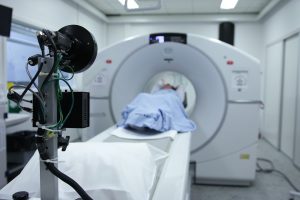A final rule adopted by the Library of Congress in 2021 has survived a long-gestating challenge from a duo of medtech industry groups, thanks to a recently issued dismissal from a federal judge in the District of Columbia. The rule, which is effectively an extension of the Digital Millennium Copyright Act from 1998, exempts third parties from the statute’s overall ban in their work to access copyrighted software embedded in medical devices for diagnostic, maintenance, and/or repair purposes.
The most common devices that this applies to are clinical medtech mainstays such as MRI machines, CT scanners, and defibrillators.
Several trade groups took umbrage with the idea, claiming it was a step beyond the congressional librarian’s statutory authority, and moreover a flagrant violation of constitutional separation of powers. The exemption was prompted by numerous independent service organizations charged with maintaining complex, computer-controlled medical equipment, which was brought further credence by the COVID-19 pandemic and its role in broadening the use scenarios of lifesaving medtech.
Ultimately, though, the argument for the exemption hinged on the fact that medical device owners would be prohibited from repairing their own equipment without risk of a lawsuit. The only workaround, and a costly one, would be buying into burdensome service contracts from device manufacturers.
The judge behind the dismissal, Chief Judge Beryl Howell of the U.S. District Court in D.C., offered in her decision that the Library of Congress has not gone too far with its rulemaking authority by creating the exemption. She noted that a wide range of access exemptions already exists, such as those for computer programs in motor vehicles, smartphones, home security systems, and smart appliances.























